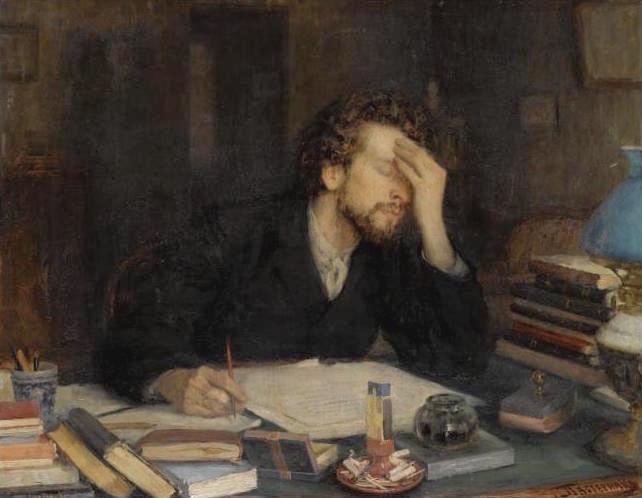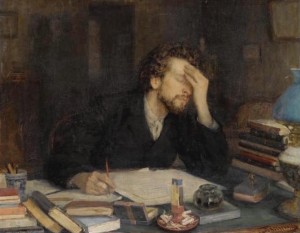A new year, and a work in progress—a novel set in 1959 Berlin.
I’m far enough along in the writing process to be able to see the shape of the finished work; so I’m past the point of writerly no return. Sometimes it’s better to walk away from a partial manuscript, when the imagined story somehow isn’t translating to the page. Fortunately, this isn’t one of those times, but I do have some works in progress that are no longer in progress—abandoned when I realized that they were falling short of the storytelling mark.
There is no one way to write fiction. I’m a block writer who works from a very loose outline. After composing blocks of dialogue and scenes, I stitch them together and then begin revising and rewriting. In contrast, sequential writers start at the beginning of a book and work their way methodically to its conclusion.
I’m not wired to write sequentially. Block writing allows me to skip around and make some progress every time I sit down to write. Since the length of the finished novel will be somewhere between 85,000 to 100,000 words, every word composed today means one less that I need to write tomorrow.
After the first draft is complete, I turn to revising. It’s the final write-throughs of a novel that I find to be the hardest part of the process. Nagging questions require answers: Does the narrative flow? Are the characters fully developed? Is the writing—the prose—clear? Is it specific enough? Is the story one I would find worth reading? And then I try not to let the perfect become the enemy of the good—it is possible to spend years rewriting the same book and in all that time no story is being told.
I take inspiration from those time-lapse videos of artists completing their paintings. First, the painter sketches a pencil or charcoal outline on an empty canvas, followed by the application of layer after layer of paint. Watching as a talented artist returns to the same spot on the canvas and alters previous brushstrokes (and in some cases scrapes off some of the existing paint) is a reassuring validation of the revision process I employ.
With any work in progress, I find it useful to focus my energies on step-by-step, day-by-day progress. If I do the work, meet deadlines, and rely on craft (not talent), the story will emerge, a story I trust will be worth telling.
Copyright © 2016 by Jefferson Flanders

